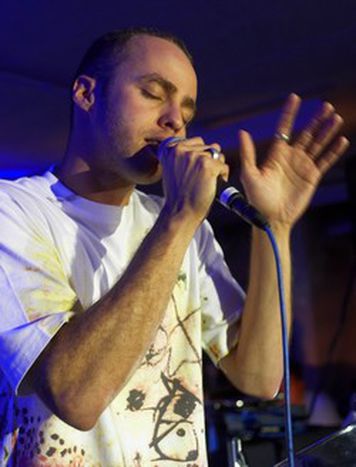
Mattafix: Brit hip hop in Darfur
Published on
'Living Darfur' is the first single by international artists to be filmed in a war zone, on the eastern Chad border. We speak to London-born lead singer Marlon Roudette, 22
In September charity shop Oxfam, in association with various Darfur charities and numerous big name musicians, staged 'Oxjam' - a series of live gigs from a 200-capacity converted shop in Dalston, east London. They approached up-and-coming UK soul/ reggae/ hip hop artists Mattafix after 'Save Darfur' promoted the 'Living Darfur' single.
Marlon Roudette, 22, fronts the band alongside Preetesh Hirji, and possesses a distinct air of calm Caribbean cool. Despite his age, the west Londoner shows a surprising maturity and understanding of the issues surrounding his music - Darfur being what António Guterres, Portuguese UN High Commissioner for Refugees, has branded 'the largest, most complex humanitarian problem on the globe.'
What’s your background?
I spent the first eight years of my life in Ladbroke Grove, my stomping ground. When I was nine my mother moved us to St Vincent and the Grenadines, where she’s from. I came back to London when I was eighteen.
What music did you listen to growing up in the Caribbean?
I had a real blessed upbringing when it comes to influences. When I first started going out, the early big Sean Paul tracks had just hit, and Jamaican reggae artists DJ General Degree and singer-producer Buju Banton were massive. St Vincent has a strong tradition of soca music. At home, my mum was into a lot of black music, including South African reggae stars Lucky Dube, Hugh Masekela, as well as a lot of soul from the US.
How did you first get into the music scene?
I played in a steel band in Caribbean hotels for tourists. Back in London, I slowly worked my way into the studio. I found out quickly that I could make an impact with melodies and carve a niche for myself with the reggae influences I had.
How were you received in your recent 30-country European tour?
Mattafix do a lot better outside the UK than in it. We hit the road last year after our first single 'Big City Life' was a number one record in seven countries (including Germany, Austria, Italy, Poland, Switzerland and Luxembourg). Travelling really humbles you as a person and as musicians had an effect on our sound. I came back as a changed man after we shot the video for our Living Darfur single on the Darfur/ Chad border - you can't exist like that after you’ve seen that sort of stuff.
Mattafix's European hit 'Big City Life'
How did you end up shooting in a Chad refugee camp?
I was recording with an artist in South Africa and wrote a song about the African struggle. We wrote and re-wrote it, and eventually the 'Save Darfur' campaign heard it and asked us to get involved. I said 'of course, that was our thinking.' I had followed the Darfur conflict for a few years after it started in July 2003. Today, it's the biggest concentration of suffering in the world. It deserves better from the international community, so I was only happy to lend my voice and talents to that.
In the video, children are playing and lyrics include ‘you shall rise’. I get the impression you were aiming for a positive vision of a very sad crisis. Is this a more effective way of publicising the crisis than showing its true horrors – for example, 400, 000 people have been killed so far.
I sit back and see the 'compassion fatigue' that’s kicked in recently in the mass media - pictures of starving kids seem to be losing their effect. Mattafix had to put our faith in the originality of it. Despite what these people have been through, there’s a huge amount of resourcefulness and energy there. It was all too apparent that whole families had been ripped apart, women raped repeatedly and orphaned kids. But somehow there was organisation in the camps, managing to make the best of it. We tried to capture this humanity at its rawest.
Do you think that holding small gigs in intimate venues like this is any less effective than a Live8 style mega-concert?
It’s different. Live8 had mass world-appeal. But whereas the flame with something like that can dim quite quickly, historically, revolutions start from the small pockets of dissenters. Music is linked to the struggle and I write with that in mind. Something like this can have more longevity.
Can musicians influence governments and public consciousness?
I’m an optimist. I’ve seen the fatigue and cynicism that’s crept into the UK recently with regards to this - we need to reinvigorate it now. Mattafix are a small part of it all.
'Living Darfur' - watch the Mattafix video on the Chad border



